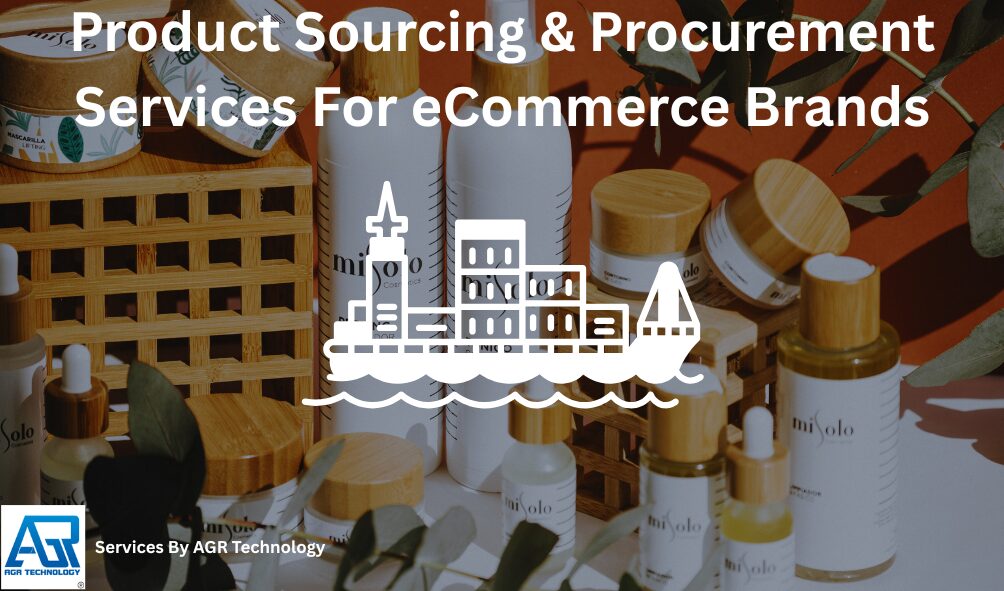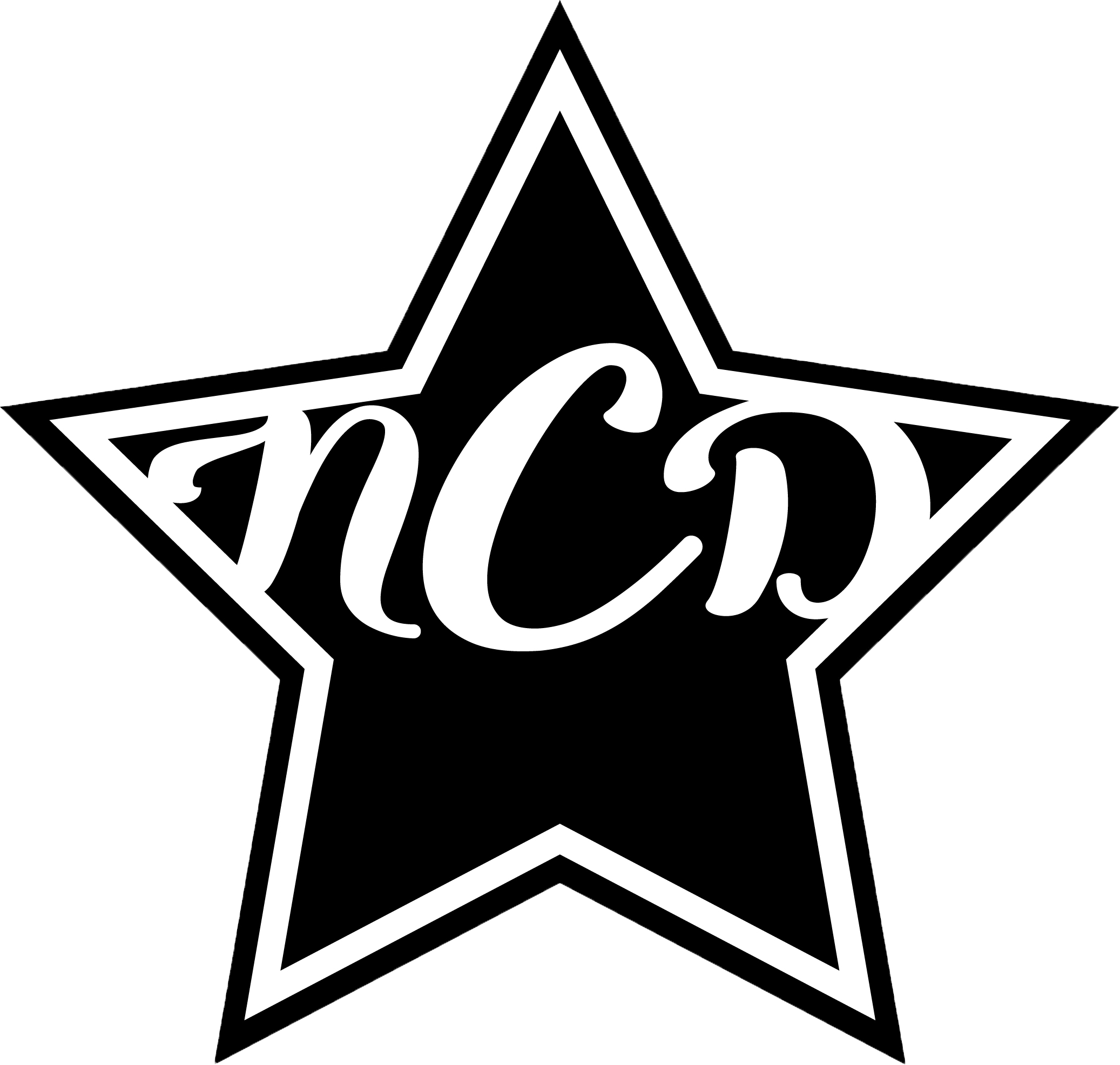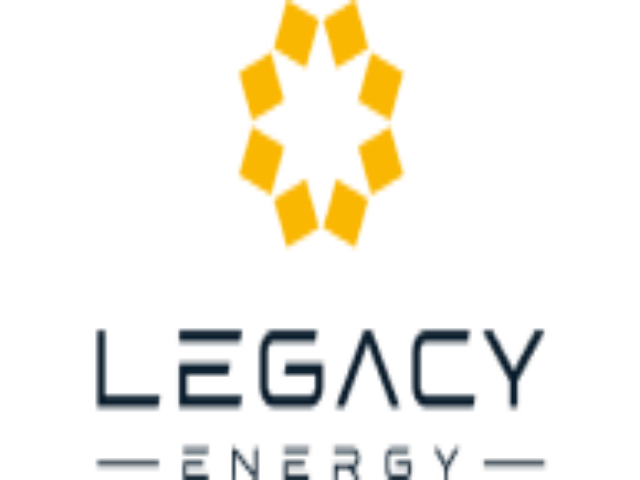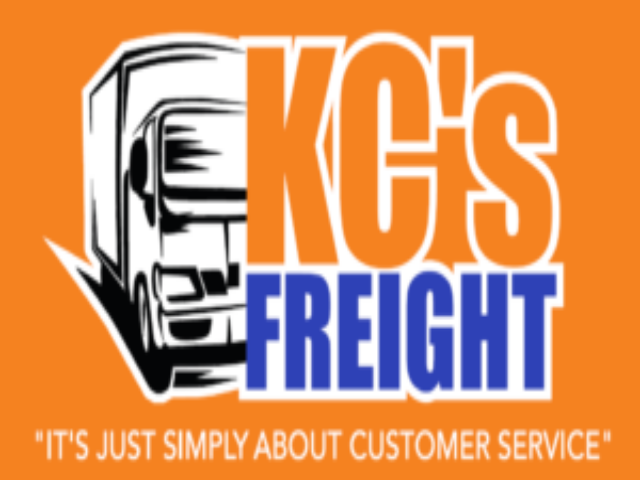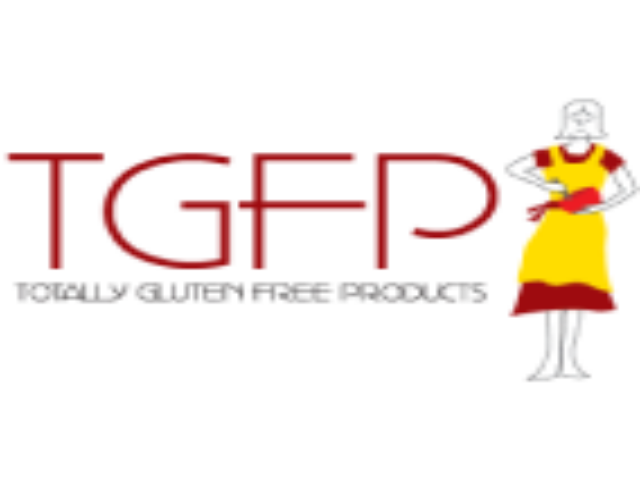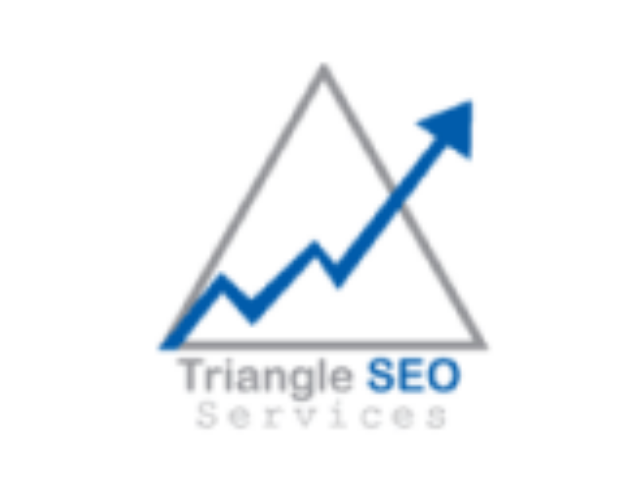Finding the right products at competitive prices can make or break an ecommerce business. Product sourcing – the process of identifying and obtaining quality products from reliable suppliers – directly impacts your profit margins, inventory availability, and customer satisfaction. For many online retailers, navigating the complex maze of suppliers, hidden fees, and quality concerns becomes a time-consuming challenge that pulls focus from core business operations.
Procurement services have emerged as a game-changing solution for ecommerce brands looking to streamline their sourcing process. These specialized services leverage established supplier networks and industry expertise to reduce time-to-market for new products while ensuring quality standards. With access to trusted manufacturers and negotiated pricing structures, businesses can quickly adapt to market trends and consumer preferences.
The goal isn’t just finding products – it’s about securing the best items from reputable suppliers at rates that maximize your profit potential. Professional procurement services transform what’s often a complicated, risky process into a strategic advantage for growing ecommerce brands.
Need help sourcing and importing machinery, equipment or other goods? Contact us to find out how we can help
Reviews from our clients
Supporting businesses of all sizes to get ahead with digital solutions
What Are Product Sourcing Procurement Services for Ecommerce Brands

Product sourcing procurement services encompass comprehensive solutions that connect ecommerce brands with verified suppliers and streamline the entire procurement process. These specialized services handle everything from initial supplier identification to quality control and logistics coordination on behalf of online retailers.
Core Service Components
Product sourcing procurement services typically include:
- Supplier identification and vetting – Locating reliable manufacturers and distributors across global markets
- Price negotiation and contract management – Securing competitive rates and favorable terms with suppliers
- Quality assurance and compliance – Ensuring products meet required standards and regulations
- Order management and logistics coordination – Managing purchase orders and delivery schedules
- Risk assessment and mitigation – Evaluating supplier reliability and market conditions
How These Services Transform Ecommerce Operations
Professional procurement services eliminate the time-consuming process of researching thousands of potential suppliers. Instead of spending weeks evaluating manufacturers, eCommerce brands gain immediate access to pre-vetted supplier networks with established track records.
These services leverage existing relationships with suppliers to negotiate better pricing than individual brands could achieve independently. Procurement professionals understand market dynamics and use volume purchasing power across multiple clients to secure advantageous rates.
Strategic Inventory Management Support
Procurement services implement strategic inventory management practices that optimize stock levels and reduce carrying costs. They analyze sales data and market trends to recommend appropriate order quantities and timing, preventing both stockouts and excess inventory situations.
Market Responsiveness and Competitive Advantage
These services enable rapid response to market trends by maintaining relationships with diverse supplier networks. When consumer preferences shift or new product opportunities emerge, procurement professionals can quickly source and onboard new products, reducing time-to-market significantly.
The agility provided by professional procurement services allows ecommerce brands to capitalize on seasonal trends and emerging market opportunities while competitors struggle with lengthy sourcing processes.
Types of Product Sourcing Methods
Ecommerce brands have access to several distinct sourcing approaches, each offering unique advantages for different business models and growth strategies. Understanding these methods helps you select the most effective approach for your specific needs and market positioning.
Manufacturers and Private Label
Direct manufacturer relationships represent the foundation of private label sourcing, where we work directly with production facilities to create custom-branded products. This method offers the highest profit margins and complete control over product specifications, quality standards, and branding elements.
Private label sourcing involves partnering with manufacturers who produce goods according to your exact requirements and specifications. These partnerships typically require minimum order quantities ranging from 100 to 10,000 units depending on the product category and manufacturer capabilities.
Key advantages include:
- Brand exclusivity – Products carry your unique branding and can’t be sold by competitors
- Higher profit margins – Eliminating middlemen increases profitability by 40-60%
- Quality control – Direct oversight of production processes and materials
- Customization flexibility – Ability to modify designs, packaging, and features
Manufacturing partnerships work best for established brands with consistent sales volumes and sufficient capital for larger initial investments. The process typically takes 30-90 days from initial contact to product delivery, making it ideal for planned inventory cycles rather than rapid market testing.
Wholesalers and Distributors
Wholesale sourcing connects ecommerce brands with established distributors who purchase products in bulk from manufacturers and resell them to retailers. This method provides access to proven products with existing market demand and faster inventory turnover.
Distributors maintain extensive product catalogs across multiple categories, offering brands the ability to test various products without significant upfront commitments. Minimum order quantities typically range from 12-100 units per SKU, making wholesale accessible for smaller businesses and new market entrants.
Benefits of wholesale sourcing include:
- Lower barriers to entry – Smaller minimum orders and reduced financial risk
- Proven market demand – Products have established sales history and customer acceptance
- Faster time to market – Immediate product availability without development cycles
- Diverse product selection – Access to thousands of SKUs across multiple categories
Wholesale relationships excel for businesses focused on rapid scaling, market testing, or seasonal inventory management. Profit margins typically range from 30-50%, providing sustainable profitability while maintaining competitive pricing flexibility.
Dropshipping Services
Dropshipping eliminates inventory management by connecting your store directly with suppliers who fulfill orders on your behalf. This method requires minimal upfront investment and allows you to offer extensive product catalogs without physical storage requirements.
Modern dropshipping services provide automated order processing, real-time inventory updates, and integrated shipping solutions that seamlessly connect with your eCommerce platform. Suppliers handle all fulfillment logistics, from packaging to customer delivery, while maintaining your brand’s shipping standards.
Dropshipping advantages include:
- Zero inventory investment – No upfront product purchases or storage costs
- Unlimited scalability – Add thousands of products without space constraints
- Location independence – Operate from anywhere without physical infrastructure
- Risk mitigation – Test products without inventory commitments
This model works particularly well for new eCommerce ventures, niche market exploration, or businesses prioritizing cash flow management over profit maximization. While profit margins are typically lower at 10-30%, the reduced operational complexity and financial risk make dropshipping an attractive entry point for many brands.
Each sourcing method serves different business objectives and growth phases, allowing eCommerce brands to select the approach that best aligns with their current capabilities and future expansion plans.
Key Benefits of Professional Procurement Services

Professional procurement services transform how eCommerce brands approach product sourcing by delivering measurable advantages that directly impact profitability and operational efficiency. These specialized services provide strategic value through three critical areas that address the most pressing challenges facing online retailers.
Cost Savings and Competitive Pricing
Procurement professionals leverage established supplier relationships and industry expertise to secure substantial cost reductions for eCommerce brands. These specialists negotiate volume discounts and preferential pricing by consolidating purchasing power across multiple clients, enabling smaller businesses to access pricing typically reserved for large-scale operations.
Key cost advantages include:
- Volume-based pricing negotiations that can reduce per-unit costs by 15-30%
- Elimination of markup fees from intermediaries and distributors
- Access to manufacturer-direct pricing through established partnerships
- Reduced supplier management costs through consolidated vendor relationships
Strategic procurement services aggregate buying power across their client base, allowing businesses to achieve economies of scale that wouldn’t be possible independently. This consolidation approach enables ecommerce brands to offer competitive retail prices while maintaining healthy profit margins, directly supporting business growth and market positioning.
The financial impact extends beyond initial purchase costs. Professional procurement services identify cost-saving opportunities throughout the supply chain, from optimized shipping arrangements to bulk packaging discounts. Some businesses achieve annual savings in the millions through comprehensive procurement strategies that address every aspect of the purchasing process.
Quality Control and Risk Management
Professional procurement services implement rigorous quality assurance protocols that protect eCommerce brands from product defects, supplier inconsistencies, and reputational damage. These services maintain networks of pre-vetted suppliers who meet stringent quality standards and operational requirements.
Quality control measures include:
- Factory audits and supplier certification processes
- Pre-shipment product inspections and testing
- Compliance verification for international trade regulations
- Continuous supplier performance monitoring and evaluation
Procurement specialists conduct thorough due diligence on potential suppliers, evaluating manufacturing capabilities, quality systems, and financial stability. This vetting process reduces the risk of partnering with unreliable vendors who might deliver substandard products or fail to meet delivery commitments.
Risk mitigation extends to supply chain diversification strategies that prevent over-reliance on single suppliers or geographic regions. Professional procurement services maintain backup supplier networks and alternative sourcing options, ensuring business continuity even when disruptions occur in primary supply channels.
Time Efficiency and Faster Market Entry
Procurement services dramatically reduce the time required to source new products and enter emerging market segments. These specialists maintain extensive supplier databases and established relationships that eliminate the lengthy process of vendor identification, evaluation, and negotiation.
Time-saving benefits include:
- Immediate access to pre-qualified supplier networks
- Streamlined product development and sampling processes
- Accelerated order processing and fulfillment timelines
- Reduced administrative burden for supplier management
The speed advantage proves particularly valuable when capitalizing on market trends or seasonal opportunities. While competitors spend weeks identifying suitable suppliers, businesses using procurement services can source and launch new products within days, capturing market share before opportunities diminish.
Procurement specialists handle complex logistics coordination, documentation requirements, and quality control processes that typically consume significant internal resources. This operational efficiency allows ecommerce teams to focus on core business activities like marketing, customer service, and strategic planning rather than administrative procurement tasks.
Established supplier relationships enable faster communication and priority treatment for urgent orders or custom requirements. This preferential access translates to shorter lead times and more flexible production scheduling, supporting agile inventory management and responsive customer service.
Essential Features to Look for in Sourcing Services
Selecting the right sourcing service partner requires evaluating specific capabilities that directly impact your eCommerce operations. These essential features distinguish professional procurement services from basic supplier directories and determine the success of your sourcing strategy.
Supplier Network and Global Reach
A comprehensive supplier network forms the backbone of effective procurement services. Professional sourcing services maintain relationships with verified suppliers across multiple continents, providing access to manufacturers in China, Southeast Asia, Latin America, and other key production regions. These established networks include suppliers across diverse product categories, from electronics and gadgets to apparel and home goods.
The depth of supplier relationships matters significantly for pricing negotiations and quality assurance. Sourcing services with 5+ years of supplier partnerships can secure better pricing terms and faster production timelines compared to businesses approaching manufacturers independently. Global reach enables diversification strategies that reduce supply chain risks while offering alternative sourcing options during market disruptions.
Regional expertise becomes crucial when navigating cultural differences, language barriers, and local business practices. Sourcing services with offices in major manufacturing hubs like Shenzhen, Bangkok, and Mexico City provide on-ground oversight and facilitate direct communication with suppliers.
Quality Assurance Programs
Rigorous quality control measures protect eCommerce brands from product defects and supplier inconsistencies that can damage customer relationships. Professional sourcing services implement multi-stage inspection processes including pre-production samples, in-line production monitoring, and final quality inspections before shipment.
Factory audits form a critical component of quality assurance programs. These comprehensive evaluations assess manufacturing capabilities, quality management systems, and compliance with international standards. Sourcing services conduct facility inspections covering production equipment, worker safety protocols, and environmental compliance measures. Regular audit schedules ensure ongoing supplier performance meets established quality benchmarks.
Product testing protocols verify specifications and safety standards across different product categories. Electronics undergo electrical safety testing, apparel receives fabric composition analysis, and consumer goods complete durability assessments. Independent third-party testing facilities provide unbiased quality verification that protects brands from liability issues and customer complaints.
Documentation and traceability systems maintain detailed records of quality control activities throughout the sourcing process. Digital quality reports include photographic evidence, test results, and corrective action plans when issues arise. This transparency enables eCommerce brands to make informed decisions about product acceptance and supplier performance.
Technology Integration and Analytics
Modern sourcing services leverage technology platforms that streamline procurement processes and provide actionable business intelligence. Cloud-based systems offer real-time visibility into order status, inventory levels, and supplier performance metrics through centralized dashboards.
Integration capabilities with existing eCommerce platforms eliminate manual data entry and reduce order processing errors. API connections synchronize product information, pricing updates, and inventory levels between sourcing platforms and online stores. This automation enables faster product launches and more accurate inventory management across multiple sales channels.
Advanced analytics tools track key performance indicators including supplier delivery times, quality scores, and pricing trends. Machine learning algorithms identify patterns in supplier performance and market conditions that inform strategic sourcing decisions. Predictive analytics help forecast demand fluctuations and optimize inventory levels to minimize stockouts and excess inventory costs.
Communication tools facilitate collaboration between sourcing teams, suppliers, and ecommerce brands through integrated messaging systems and document sharing platforms. Mobile applications enable on-the-go access to critical sourcing information and approval workflows that keep projects moving forward regardless of location.
Reporting capabilities generate customized dashboards showing spend analysis, supplier scorecards, and cost savings opportunities. These insights support data-driven decision making and demonstrate the ROI of professional sourcing services through measurable performance improvements.
How to Choose the Right Procurement Partner
Selecting the ideal procurement partner determines your sourcing success and directly impacts your profit margins and operational efficiency. The right partnership transforms your supply chain management while the wrong choice creates costly delays and quality issues.
Evaluating Service Providers
Network Scope and Geographic Coverage
We evaluate procurement partners based on their supplier network depth and global reach. Leading service providers maintain relationships with 1,000+ verified suppliers across 15+ countries, providing access to diverse product categories and pricing tiers. Their network should include manufacturers from major production hubs like China, India, Malaysia, and the Middle East, enabling flexible sourcing strategies that adapt to market conditions and cost fluctuations.
Quality Control Infrastructure
Effective procurement partners implement multi-stage quality assurance programs with on-site inspection capabilities. They conduct factory audits using standardized protocols, perform pre-shipment inspections for every order, and maintain quality scorecards for supplier performance tracking. This infrastructure reduces defect rates compared to direct sourcing approaches and protects your brand reputation from product quality issues.
Technology Integration Capabilities
Modern procurement services leverage integrated platforms that connect inventory management systems, order processing workflows, and supplier communication channels. These platforms provide real-time pricing updates, automated purchase order generation, and detailed analytics dashboards that track key performance metrics like lead times, quality scores, and cost savings achievements.
Industry Experience and Specialization
We prioritize partners with demonstrated expertise in your specific product categories and market segments. Specialists in electronics, fashion, home goods, or health products bring category-specific knowledge about compliance requirements, seasonal trends, and supplier performance patterns. This expertise translates to faster product identification, accurate market pricing, and reduced procurement cycle times.
Contract Negotiation Best Practices
Service Level Agreement Definition
Comprehensive contracts establish specific performance metrics including maximum lead times (typically 10-15 business days for standard orders), quality acceptance rates (minimum 95% pass rates), and communication response times (within 4-8 hours during business days). These agreements create accountability frameworks that protect your operational requirements and enable performance-based relationship management.
Payment Terms and Protection Mechanisms
Negotiated payment structures protect cash flow while ensuring service provider commitment to performance standards. Standard terms include 30-50% deposits for order initiation with balance payments upon quality confirmation and shipping documentation. Escrow arrangements provide additional protection for large orders ($10,000+) by releasing payments in stages based on milestone achievements.
Intellectual Property and Confidentiality Clauses
Contracts must include comprehensive non-disclosure agreements that protect proprietary product designs, pricing information, and supplier relationships. These clauses prevent service providers from sharing sensitive business information with competitors and establish legal recourse for intellectual property violations. Additional provisions should address product customization rights and brand exclusivity arrangements within specific market segments.
Termination and Transition Planning
Well-structured agreements include clear termination procedures that protect business continuity during partner transitions. Contracts should specify 30-60 day notice requirements, supplier relationship transfer protocols, and inventory management during transition periods. These provisions ensure smooth operations changes without disrupting customer fulfillment or supplier relationships that support ongoing business operations.
Common Challenges and Solutions
Product sourcing procurement presents complex obstacles that can significantly impact eCommerce operations and profitability. Understanding these challenges and implementing strategic solutions enables brands to build resilient supply chains and maintain competitive advantages.
Supply Chain Disruptions
Global supply chains face unprecedented volatility that can halt operations within days. Natural disasters affect manufacturing regions while political tensions create trade restrictions that impact product availability. Port congestions and shipping delays extend lead times from weeks to months.
Key disruption factors include:
- Weather events disrupting manufacturing facilities
- Geopolitical tensions affecting trade routes
- Transportation bottlenecks at major shipping hubs
- Labor shortages impacting production schedules
Strategic solutions we recommend:
- Diversify supplier networks across multiple geographic regions to reduce dependency risks
- Establish buffer inventory levels for critical products to maintain stock during disruptions
- Implement supply chain monitoring systems that provide real-time visibility into potential issues
- Develop contingency plans with alternative suppliers and shipping routes
- Create flexible procurement contracts that accommodate supply chain variability
Quality Control Issues
Product quality inconsistencies damage brand reputation and increase return rates. Manufacturing defects slip through inadequate inspection processes while cultural differences in quality standards create expectation gaps. Poor quality control systems fail to catch issues before products reach customers.
Common quality challenges include:
- Inconsistent manufacturing standards across different suppliers
- Limited visibility into production processes and quality checkpoints
- Language barriers preventing clear quality specification communication
- Inadequate testing procedures for products before shipment
Effective quality solutions:
- Implement comprehensive quality assurance programs with detailed inspection protocols
- Establish clear quality standards and specifications that suppliers must meet
- Conduct regular factory audits to verify production capabilities and quality systems
- Require pre-shipment samples and testing for all new products and suppliers
- Create quality feedback loops that address issues immediately when detected
- Partner with procurement services that maintain established quality control infrastructure
Communication and Cultural Barriers
International sourcing creates communication complexities that lead to misunderstandings and operational inefficiencies. Language differences cause specification errors while cultural variations affect business practices and expectations. Time zone differences delay decision-making and problem resolution.
Communication obstacles include:
- Language barriers causing misinterpretation of product specifications
- Cultural differences in business communication styles and practices
- Time zone challenges delaying urgent communications and approvals
- Lack of standardized documentation and reporting formats
Communication improvement strategies:
- Utilize professional translation services for critical communications and contracts
- Establish standardized communication protocols with regular check-in schedules
- Create detailed documentation templates that minimize interpretation errors
- Invest in relationship building through regular supplier visits and cultural training
- Implement collaborative platforms that facilitate real-time communication across time zones
- Partner with procurement services that have established relationships and cultural expertise
These challenges require proactive management and strategic planning to maintain efficient sourcing operations. Professional procurement services provide the expertise and infrastructure necessary to navigate these complexities while protecting business interests and operational continuity.
Best Practices for Long-Term Success
Sustainable procurement success requires implementing strategic practices that extend beyond immediate sourcing needs. These foundational approaches create resilient supply chains and position eCommerce brands for consistent growth.
Building Strong Supplier Relationships
Communication protocols establish the foundation for successful partnerships. Regular check-ins with suppliers create transparency and identify potential issues before they impact operations. Document all communications through formal channels to maintain clear records of agreements and modifications.
Performance metrics drive continuous improvement in supplier relationships. Track key indicators including delivery timeliness quality scores and responsiveness rates. Share performance data with suppliers quarterly to foster collaborative improvement initiatives.
Long-term contracts provide stability for both parties while offering volume-based pricing advantages. Negotiate multi-year agreements with graduated pricing tiers that reward consistent order volumes. Include performance clauses that maintain quality standards throughout the contract duration.
Joint planning sessions align supplier capabilities with business growth projections. Schedule annual strategic reviews to discuss upcoming product launches seasonal demand fluctuations and capacity requirements. This collaborative approach enables suppliers to allocate resources effectively and secure raw materials in advance.
Inventory Management Strategies
Demand forecasting accuracy reduces inventory carrying costs while preventing stockouts. Utilize historical sales data seasonal trends and market analysis to predict future demand patterns. Implement rolling forecasts that adjust monthly based on actual performance versus projections.
Safety stock calculations balance service levels with working capital requirements. Establish minimum inventory thresholds based on lead times demand variability and target service levels. Calculate safety stock using statistical models that account for supplier reliability and demand uncertainty.
ABC analysis prioritizes inventory investment based on revenue contribution. Categorize products by sales volume and profit margins to allocate inventory budgets effectively. Focus procurement efforts and safety stock investments on A-category items that generate the highest revenue impact.
Inventory turnover optimization maximizes cash flow while maintaining product availability. Monitor turnover rates by product category and adjust ordering frequencies to achieve target turn ratios. Implement automated reorder points that trigger purchases when inventory reaches predetermined levels.
Market Research and Trend Analysis
Consumer behavior tracking identifies emerging product opportunities and shifting preferences. Monitor social media engagement search trends and customer feedback to detect early signals of market changes. Analyze competitor product launches and pricing strategies to identify market gaps.
Seasonal pattern analysis optimizes inventory planning and promotional timing. Document historical sales patterns by month week and day to identify recurring trends. Factor seasonal variations into procurement schedules to ensure adequate inventory during peak demand periods.
Price monitoring maintains competitive positioning while protecting profit margins. Track competitor pricing changes raw material costs and currency fluctuations that impact procurement expenses. Establish price alert systems that notify stakeholders when market conditions require pricing adjustments.
Technology adoption evaluation ensures procurement processes remain efficient and competitive. Assess emerging procurement technologies including AI-powered demand forecasting and automated supplier management platforms. Pilot new solutions with limited product lines before implementing company-wide rollouts.
Supplier market intelligence guides strategic sourcing decisions and risk management. Research supplier financial stability market share and competitive positioning within their industries. Monitor regulatory changes trade policies and geopolitical factors that could impact supplier operations and pricing.
Conclusion
Product sourcing procurement services represent a strategic investment that can transform your ecommerce operations. By partnering with experienced procurement professionals you’ll gain access to vetted supplier networks quality assurance programs and streamlined processes that directly impact your bottom line.
The complexities of modern supply chains demand expertise that most ecommerce brands simply don’t have in-house. Professional procurement services bridge this gap by providing the infrastructure technology and relationships needed to navigate today’s challenging sourcing landscape.
When you’re ready to scale your operations and optimize your supply chain we recommend evaluating procurement partners based on their network reach quality control capabilities and alignment with your business goals. The right partnership will deliver measurable improvements in cost efficiency product quality and operational performance that drive long-term success.
Need help sourcing and importing machinery, equipment or other goods? Contact us to find out how we can help
Frequently Asked Questions
What is product sourcing and why is it important for eCommerce?
Product sourcing is the process of finding and acquiring products to sell in your online store. It’s crucial for eCommerce because it directly impacts profit margins, inventory management, and customer satisfaction. Effective sourcing helps businesses secure quality products at competitive prices while ensuring reliable supply chains to meet customer demand.
What are procurement services for eCommerce businesses?
Procurement services are professional solutions that connect eCommerce brands with verified suppliers and manage the entire sourcing process. They handle supplier identification, price negotiation, quality assurance, and logistics coordination. These services provide access to established supplier networks and expertise, streamlining operations for online retailers.
What are the main types of product sourcing methods?
The three main sourcing methods are private label sourcing (custom products with your brand), wholesale sourcing (buying existing products in bulk), and dropshipping services (supplier ships directly to customers). Each method suits different business models and growth strategies, offering varying levels of control and investment requirements.
How do procurement services help reduce costs and save time?
Procurement services provide immediate access to pre-vetted suppliers and leverage existing relationships for better pricing. They eliminate the time-consuming process of supplier research and verification, while their expertise in negotiation secures competitive rates. This allows businesses to focus on core operations while professionals handle complex sourcing tasks.
What features should I look for in a sourcing service provider?
Key features include a comprehensive global supplier network, quality assurance programs, and technology integration capabilities. Look for providers with strong industry experience, robust quality control infrastructure, transparent pricing models, and the ability to handle various sourcing methods like private label, wholesale, and dropshipping.
What are common challenges in product sourcing?
Major challenges include supply chain disruptions from weather events or geopolitical tensions, quality control issues with overseas suppliers, and communication barriers due to language differences. These issues can lead to inventory shortages, product defects, and delayed shipments that impact customer satisfaction and business operations.
How can I overcome supply chain disruptions?
Diversify your supplier network across different regions to reduce dependency on single sources. Establish buffer inventory levels for critical products and maintain strong relationships with multiple suppliers. Professional procurement services can help implement these strategies and provide access to alternative suppliers during disruptions.
What are best practices for long-term procurement success?
Build strong supplier relationships through regular communication and performance metrics. Implement effective inventory management with demand forecasting and safety stock calculations. Conduct regular market research to identify trends and opportunities. Leverage technology for process efficiency and maintain supplier market intelligence for strategic decisions.
How do quality assurance programs work in product sourcing?
Quality assurance programs involve comprehensive testing protocols, supplier audits, and standardized quality control procedures. They include pre-production samples, in-line inspections during manufacturing, and final product testing before shipment. These programs help ensure products meet specifications and maintain brand reputation.
What should be included in procurement contracts?
Essential contract elements include clear service level agreements, payment terms, and intellectual property protection clauses. Define quality standards, delivery timelines, and communication protocols. Include provisions for dispute resolution and termination conditions. Professional procurement services can help negotiate favorable terms and ensure comprehensive contract coverage.
Related content:
Enterprise eCommerce Development Services
eCommerce Marketplace Development Services
Custom merchandise eCommerce Website Design
Gold and Silver Procurement Services

Alessio Rigoli is the founder of AGR Technology and got his start working in the IT space originally in Education and then in the private sector helping businesses in various industries. Alessio maintains the blog and is interested in a number of different topics emerging and current such as Digital marketing, Software development, Cryptocurrency/Blockchain, Cyber security, Linux and more.
Alessio Rigoli, AGR Technology
![logo-new-23[1] logo-new-23[1]](https://agrtech.com.au/wp-content/uploads/elementor/thumbs/logo-new-231-qad2sqbr9f0wlvza81xod18hkirbk9apc0elfhpco4.png)
